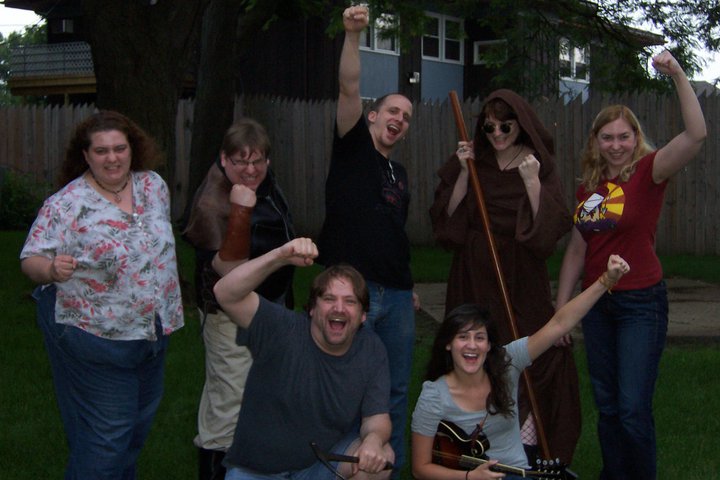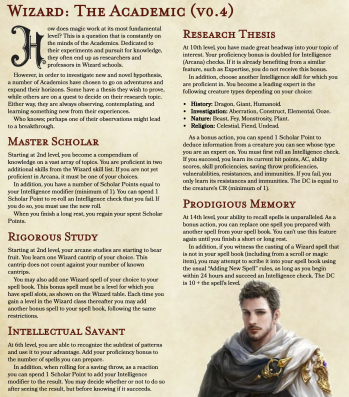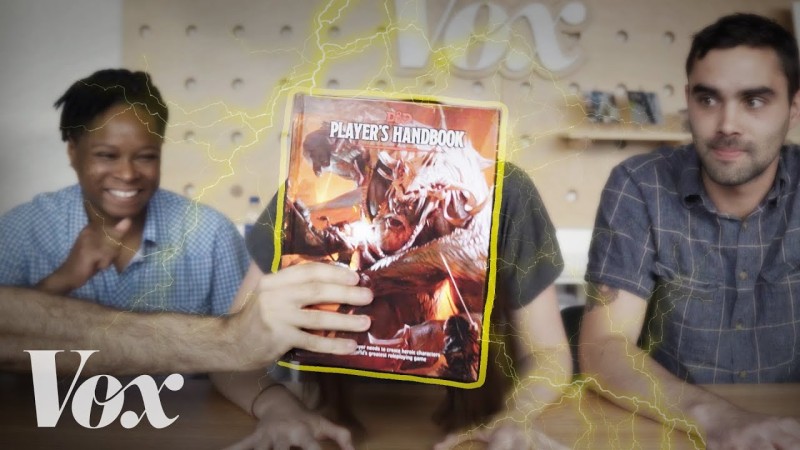By Holly Walters
“Sherlock Holmes was the first fictional creation adults openly embraced as “real,” while deliberately ignoring or minimizing its creator, and this fetishization has continued for over a century…. Holmes demonstrated how the modern world could be re- enchanted through means entirely consistent with modernity.” (Saler 2003)
Let me offer you a bit of modern whimsy. I became the regular Dungeon Master (DM) for my group of friends in middle school after having read “The Adventure of the Speckled Band;” a classic locked-room mystery wherein Sherlock Holmes solves a case regarding a frightened young heiress and a venomous snake. But for those of you not otherwise familiar with gaming terms, becoming a DM meant that I was the designated game-runner and storyteller for our weekly sessions; everyone huddled in the school library around our gaming books and bags of dice as I set the scene and spoke in the voices of the background characters. But while my love of Sherlock Holmes might not, at first, seem to mesh with the goal of slaying dragons or rescuing princesses, I can assure you that both cases and clues, encounters and exploration, have a lot to do with the person, and the social scientist, I would later become. (See also: Ginzburg 1980)
It was all Advanced Dungeons & Dragons (AD&D) back in the early 1990s but it started a life-long love of role-playing games for me that continues reasonably unabated to this day. But at the risk of sounding like a college entrance essay, playing D&D with my friends all throughout middle and high school, through my undergraduate years, and even in graduate school taught me a great deal about navigating the academic and working worlds. Managing group projects, telling a story, making sure everyone was participating and contributing, changing and adapting my approach on the fly or in response to an unexpected question, thinking on my feet, learning and applying rules to various situations, building a world we could all enjoy, and, not to be underestimated, math and vocabulary (thanks ThaAC0 and White Wolf!) – and let’s not forget to mention map-drawing and miniature building – are all still relevant to what I do now as a college professor in the social sciences. But beyond the general, I have D&D (and Sherlock Holmes) to thank for making me a better anthropologist.
Being a DM or a Storyteller comes with a fair amount of expectation. You have to constantly think about any given character’s (Player Character or Non-Player Character) motivations, back story, role, or personality. You have to have some sense of how your (fictional) world works and why. There needs to be a kind of social or cultural logic to the ways in which people interact (or don’t, as the case may be), and you need to be prepared to add background information that isn’t always immediately relevant to the narrative at hand. In short, I didn’t realize just how much being a teenage Dungeon Master had prepared me for practicing and writing ethnography.

Photo by the Author
Gaining and practicing each of these skills, for me at least, involved a significant amount of trial and error (much like my first stint in ethnographic fieldwork). The early 1990s was well before the ubiquity of the Internet, so I didn’t have much opportunity to look up instant information or ask questions on forums. I did, however, have my local library and it was not uncommon to see me among the stacks looking for books on everything from Ancient Roman culture to primers on Devanagari script to commentaries on Slavic folktales. But even more importantly, aside from this relative literature review of trying to become an interesting Dungeon Master, I also had my players. As it turned out, telling a truly good story is always, in the end, a collaborative effort and genius is something that happens more often between people. With feedback from my group as to what was working and what wasn’t, what was fun and engaging and what was boring or clunky, I eventually became more confident and much more adept in the kinds of things I needed to be able to do to make the entire endeavor work. For those of us who have now gone on to develop ethnographic projects or conduct fieldwork, this is all going to sound quite familiar. Swap players for interlocutors (or whatever your preferred term is), random library books for theoretical frameworks, and good story-telling for ethnographic writing, and you have the recipe for a classic monograph.
Playing D&D with my friends all throughout middle and high school, through my undergraduate years, and even in graduate school taught me a great deal about navigating the academic and working worlds.
Becoming practiced in telling stories also forces you to look at how narratives are made and made ‘natural,’ how categories and prejudices inform almost every aspect of characterization, how people are represented or how viewpoints are simplified, and how individuals can come to stand in for entire cultures and ideologies (see also, Mello 2006). As an exercise in parsing subjectivity, it really has no equal. Furthermore, storytelling teaches you a lot about documentation and what kinds of things you need to be keeping track of: from kinship charts to trade maps to agricultural tallies. In my game world, I had them all!
In many ways, Dungeon Masters are the ethnographers of their own worlds. Granted, we’re not exactly interviewing the people who populate them (unless you count your players in some sense) and we’re inventing most of the traditions and customs out of the content in our own imaginations. But when it comes to building a narrative about people and their ways-of-being, there isn’t all that much difference between narratives of “a” world and narratives of “the” world. This is something we actually have in common with fiction writers as well. Ethnographies share, to an extent, certain characteristics of novels; such that both the author and the anthropologist are setting out to involve their readers in a particular time and place, with a particular group of people (set up as pseudonymous dramatis personae), all who will hopefully tell us something about ourselves in the end.
As a professor, I also find that I often approach my classroom from a kind of Dungeon Master perspective. In the time we have together (our ‘session’) I need to accomplish a series of things. I need to impart a certain amount of information to my students (‘players’) in a coherent manner (‘tell a story’). I need to keep them engaged and active in the process (‘calling for knowledge checks and skill rolls’). I need to play to their strengths and address their weaknesses (‘grant experience points’). Above all, I need to present my students with challenges and problems in need of solving or re-thinking (‘the monster encounters’). And by the end of all this, I will, I hope, have some suitably higher-level player-characters to move on to the next adventure (‘upper level class’).
In this way, I’ve also seen my fair share of student-player archetypes (see D&D Player Archetypes for what I’m referring to). I have my Rules Lawyers; always looking for a loophole to exploit in the rules-as-written (also called my syllabus), or my Power Gamers; who are all about performance and getting that A+, or my Slayer, who monopolizes the conversation to play one-on-one against me. There are also the Explorers, who just want to experience all the interesting locales and strange, new, practices and the Watchers, who are really just there as part of the social event and are happy to observe everyone else take the lead.
To stretch this metaphor even further, we might even have the discussion about Character Classes versus Majors. I’m sure we’ve all seen our fair share of Archaeo-Rangers, Anthro-Rogues, Ethnomusicology-Bards, History-Fighters, Religious Studies-Clerics/Paladins, and Sociology-Wizards. But even in this ostensibly silly exercise, something is revealed. And that is just how much these archetypes, categories (however reductionist), and story arcs appeal to us (See Bowman 2010, Zalka 2016). And just how easy it is to take a lot of very complicated, nuanced, and confusing information and turn it into a coherent narrative (and by easy, I mean not easy at all). That’s what we do as gamers, as writers, and as academics—tell a story, hope it’s a good one, and pray that our audience has grown in understanding when we’re done. And, if we’ve done our job, everyone is excited to come back next week and do it all over again.
Whether you’re an ethnographer, an archaeologist, a student, or a teacher, your work is to be constantly choosing your own adventure. Even when the path ahead looks reasonably clear, there are Kobolds and Goblins, Orcs and Owlbears, or maybe a Dragon or two, always ready to jump you around the next corner. And depending on how you like to metaphorically label your problems, the Monster Handbook might supply any number of interesting and eye-rolling names for your job talk files, lecture PowerPoints, grant applications, grading folders, or article drafts (I’m never revealing the true contents of the “Eye Tyrants” folder, so stop asking).
For me, I simply never stopped being a Dungeon Master. I just eventually added a few degrees and a better title to it. There are so many new stories I want tell, so many challenges I want to meet, and so many new players I want to introduce to the unmitigated joy of a well-run game night. Whether I’m doing it at a kitchen table with a copy of the Player’s Handbook or in front of a classroom with a newly published ethnographic text, the process is roughly the same. One might argue that academia needs a much better loot system, however, because I’m still short a set of armor and I could use a new pair of gloves. I mean, they’re from, like, six levels ago.
In the end, I have to credit D&D as the thing that started me on the path of new pedagogy. For my Global Pandemics course two years ago (a kind of medical anthropology for non-anthropologists), for example, I incorporated the use of the board game Pandemic in my student’s group work, resulting in a series of fantastic final essays critiquing the movements of the game as they related to real-world epidemic scenarios and cultural situations. I’ve occasionally used role-playing exercises in my Culture and Mental Illness courses to demonstrate how patient narratives don’t neatly fit into biomedical diagnostic categories or presented difficult cross-cultural scenarios to my Intro to Cultural Anthropology students and then asked them to think about better strategies for engagement and community relations from multiple points of view. To put it another way, role-playing games have helped me to incorporate both real-world and hypothetical scenarios into my teaching such that my students have the opportunity to jump right in to complex social and cultural problem-solving in ways that feel immediately relevant to them all the while they are learning to think, hands-on, like anthropologists. I have yet, however, to actually hand out character sheets and pull out the Bygone Bestiary with a bucket full of dice while introducing our next unit on folklore and story-telling (tempting as it is!). On the other hand, I am considering a modified version of rolling Initiative for the more heated in-class debates.
Where I get the most mileage out of my history with RPGs, though, is perhaps with the concept of growing up. I often hear justifications of childhood and adolescent sports as necessary for a kid’s future success, which is very often juxtaposed against video, online, and role-play gaming as anti-social, anti-fitness, or anti-wellness. This is usually because sports are said to teach such things as teamwork, playing by the rules, working mutually towards a goal, physical fitness and health, and so on and so forth. I’m not debating that this is true for a lot of students. But let me make a plug then for the other side; right along next to the theater nerds and the Knowledge Bowl competitors and the Chess Club. Let’s make a pitch for the D&D players! We, too, learned our lessons young and have gone on to become the next generations of teachers, scientists, lawyers, artists, and academics. Many of us are even today’s anthropologists, archaeologists, linguists, and paleontologists. But whether or not you agree that role-playing games are actually any kind of preparation for a future in academia, I’ll take this time to note that, if nothing else, I have already succeeded in every role-player’s greatest dream.
You just spent the last five minutes listening to me talk about my D&D game.
(For a humorous take on all this, see also: the D&D episode of the IT Crowd).
 Holly Walters is a cultural anthropologist and professor of anthropology at Wellesley College. Her ethnographic work, including several years of extensive fieldwork, focuses on religion, pilgrimage, and politics in the Nepal Himalayas. Her research also addresses material culture, divine personhood, and ritual practice throughout South Asia. Drawing on theoretical frameworks in religion, psychological, and linguistic anthropology, her current work focuses on the roles of sacred landscapes and digital/online religious revival in the relationships between Hindus, Buddhists, and Bonpos who venerate sacred ammonite fossils, called Shaligrams. Her previously published work on this topic includes a book titled Shaligram Pilgrimage in the Nepal Himalayas (Amsterdam University Press, 2020) and a series of Open Access essays on Shaligrams for The Familiar Strange. She also has multiple article publications on ritual practice and personhood in South Asia discussing topics such as the language of fossil folklores and robot ritual performance. You can follow Holly on Twitter at @Manigarm.
Holly Walters is a cultural anthropologist and professor of anthropology at Wellesley College. Her ethnographic work, including several years of extensive fieldwork, focuses on religion, pilgrimage, and politics in the Nepal Himalayas. Her research also addresses material culture, divine personhood, and ritual practice throughout South Asia. Drawing on theoretical frameworks in religion, psychological, and linguistic anthropology, her current work focuses on the roles of sacred landscapes and digital/online religious revival in the relationships between Hindus, Buddhists, and Bonpos who venerate sacred ammonite fossils, called Shaligrams. Her previously published work on this topic includes a book titled Shaligram Pilgrimage in the Nepal Himalayas (Amsterdam University Press, 2020) and a series of Open Access essays on Shaligrams for The Familiar Strange. She also has multiple article publications on ritual practice and personhood in South Asia discussing topics such as the language of fossil folklores and robot ritual performance. You can follow Holly on Twitter at @Manigarm.
Bibliography
Bowman, Sarah Lynne. The Functions of Role-Playing Games: How Participants Create Community, Solve Problems, and Explore Identity. Jefferson, NC: McFarland, 2010.
Ginzburg, Carlo and Anna Davin. “Morelli, Freud and Sherlock Holmes: Clues and Scientific Method.” History Workshop, No. 9 (Spring, 1980), pp. 5-36.
Mello, Heather. “Invoking the Avatar: Gaming Skills as Cultural and Out-of-Game Capital.” In Gaming as Culture: Essays on Reality, Identity, and Experience in Fantasy Games. Ed. J. Patrick Williams, Sean Hendricks, and W. Keith Winkler. Jefferson, NC: McFarland, 2006. 175–95.
Saler, Michael. “Clap If You Believe in Sherlock Holmes: Mass Culture and the Re-Enchantment of Modernity, c. 1890-c. 1940.” The Historical Journal. Vol. 46, No. 3. 2003, p.601, 603)
Zalka, Csenge Virág. 2016. “Adventures in the Classroom: Creating Traditional Story-Based Role-Playing Games for the High School Curriculum.” Storytelling, Self, Society. Vol. 12, No. 2, East Tennessee State University Storytelling Master’s Program—Storytelling in Higher Education (Fall 2016), pp. 173-206 (34 pages)







As someone who begun their journey as an anthropologist (In training at least, i’ve just completed a masters degree) at the same time as they begun their journey as a dungeonmaster, this article hits some points incredibly meaningful and familiar to me. I was equally amazed and taken aback that there was someone else who saw these two things as unusal but incredibly apt bedfellows just as I do! (I know I’ve used anthropology extensively both as a DM, and as a player). Given that I intend to continue on my academic path, I hope you are right about Dungeons and Dragons being good preparation for that! I’ll certainly be crossing my fingers, and not giving up either my favourite hobby or my favourite subject any time soon!
LikeLike
[…] “Choosing Your Own Adventure: My Life as a Teenage Dungeon Master and How it Prepared Me to Become an…” By Holly Walters […]
LikeLike
Glad I’m not the only one who treats their classroom like the table. Preparation for class is where I see the most parallels in my own process. Setting up for the classroom mirrors my prep for game in a way I never expected when I first started teaching my own courses.
LikeLike